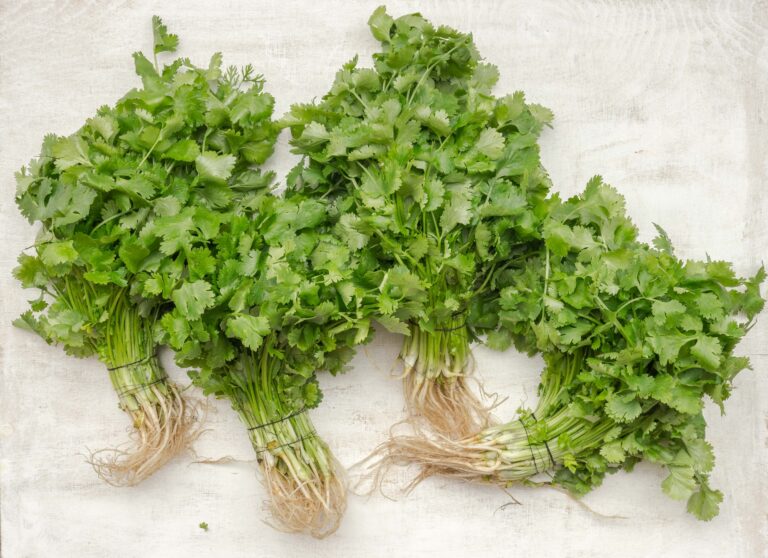About Cilantro
Cilantro, also called coriander, is native to Southern Europe and Asia and is one of the many edible plants you can grow at home and use to enrich your dishes.
Not everyone knows, but Cilantro usually refers to the leaves, while Coriander refers to the seeds of the plant.
Propagation
You can grow Cilantro from seeds in your garden pretty easily. These plants prefer warm temperatures and full sunlight, so you need to find a place for them based on this (in the fall or early spring). When it comes to the soil, they prefer loose, slightly acidic, and well-drained soil.
Care
Cilantros are not hard to take care of, but there are a few things to keep in mind.
First of all, never let them out during a harsh winter season, because they won’t live long under 10°C. They prefer warm weather and lots of sunlight.
They also need a lot of water, but you should still be careful not to overwater your cilantro plants.
A good rule of thumb is to water them frequently but lightly rather than water them a lot but not as often. Using well-drained soil is also beneficial to avoid overwatering cilantro.
If you want to know how to prune a cilantro plant, check out our full guide now!
Pruning
Pruning cilantro is a true joy for garden lovers like us! Before you begin, admire the vibrant green leaves and delightful fragrance. Check for pests or diseases and handle them promptly.
Now, let’s dive in! Pinch off the top leaves above the leaf node to stimulate branching. Trim weak or leggy stems for stronger growth.
Create space by thinning out the foliage, and removing some lower stems or leaves. Remember, if flowers appear, snip them off to prioritize leaf growth and extend the plant’s life.
Check out our full guide on Pruning Cilantro!
Common pests
- Aphids
- Beet armyworm
- Cutworms
Frequently Asked Questions
Freezing is the best method if you want to store your cilantro for a longer time – the herb can last up to 4-6 months in a freezer. If you need them to stay fresh only for a week, you can also just put them in a glass of water.
Is coriander the same as cilantro?
Well, yes and also no. Cilantro usually refers to the leaves, while Coriander refers to the seeds of the plant.
Can dogs eat cilantro?
Coriander is edible for your dog as well. It can even help your pet with an upset stomach.
How to cut cilantro?
Grab a scissor, cut the stems from the base, remove any damaged leaves and also prune the flowers if there are any.
How to keep cilantro fresh?
You can keep cilantro fresh for a week if you put them in a glass of water, or you can also freeze them for months.
